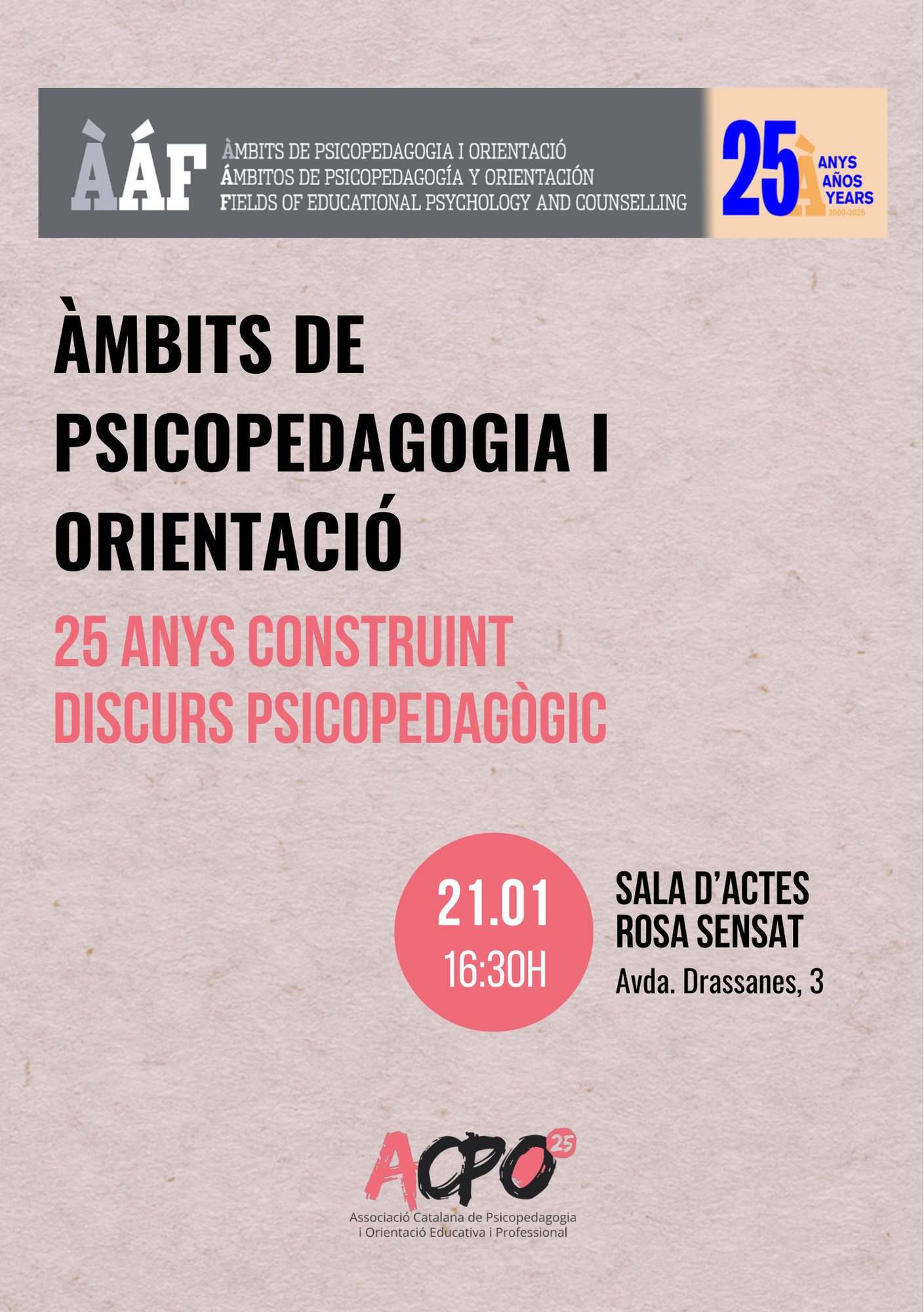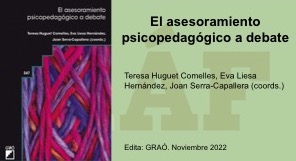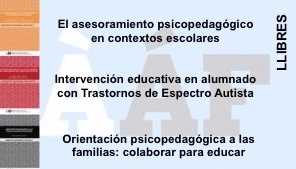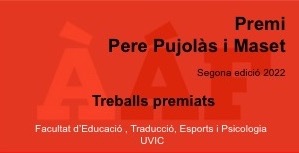Els incidents crítics a les aules de Pràcticum universitari
DOI:
https://doi.org/10.32093/ambits.vi52.2115Paraules clau:
Incidents crítics, Estudiants de Magisteri, Pràcticum, Identitat docentResum
La construcció de la identitat docent és un procés dinàmic i progressiu. Alguns esdeveniments o incidents que apareixen durant la formació inicial de la professió poden tenir un fort impacte emocional que influenciarà en com es representa la funció docent. Aquest estudi analitza quins són els incidents que els estudiants de Magisteri narren durant el seu Pràcticum a les escoles segons l’impacte que aquests han tingut en la seva identitat com a futurs mestres.
Els participants (114 estudiants de 3r i 4t curs del grau d'Educació Primària) van respondre un qüestionari obert. Es van identificar 334 incidents crítics. Els més freqüents es vinculen amb la gestió de les relacions interpersonals i les conductes individuals dels alumnes i la gestió dels continguts a aprendre. Aquells incidents relacionats amb la metodologia d’aula, l'avaluació dels aprenentatges, les relacions amb el mentor i l'organització de les activitats van ser menys reportats com a influents en la seva identitat docent.
L’anàlisi sistemàtica d’aquests incidents a les aules universitàries esdevé una estratègia formativa clau durant la formació inicial dels mestres per ajudar-los a construir i reconstruir la seva identitat com a futurs mestres.
Referències
Akkerman, S. F., i Meijer, P. C. (2011). A dialogical approach to conceptualizing teacher identity. Teaching and Teacher Education, 27(2), 308-319.
Allas, R., Leijen, Ä, i Toom, A. (2016). Supporting the Construction of Teacher’s Practical Knowledge Through Different Interactive Formats of Oral Reflection and Written Reflection, Scandinavian Journal of Educational Research, DOI: 10.1080/00313831.2016.1172504
Angelides, P. (2001). Using Critical Incidents to Understand School Cultures. Improving Schools, 4 (24), 24-33.
Badia, A., i Becerril, L. (2016). Renaming teaching practice through teacher reflection using critical incidents on a virtual training course, Journal of Education for Teaching, 42:2, 224-238.
Badia, A., Monereo, C., i Meneses, J. (2011). El profesor universitario: identidad profesional, concepciones y sentimientos sobre la enseñanza. VI Congreso Internacional de Psicología y Educación: Educación, aprendizaje y desarrollo en una sociedad multicultural. Valladolid (Spain).
Beauchamp, C., i Thomas, L. (2009). Understanding teacher identity: An overview of issues in the literature and implications for teacher education. Cambridge Journal of Education, 39 (2), 175-189.
Beijaard, D., Meijer, P.C., i Verloop, N. (2004). Reconsidering research on teachers' professional identity. Teaching and Teacher Education, 20 (2), 107-128.
Bilbao, G., i Monereo, C. (2011). Identificación de incidentes críticos en maestros en ejercicio: propuestas para la formación permanente. Revista electrónica de investigación educativa, 13,1.
Brookfield, S. (1990). Using critical incidents to explore learner’s assumptions, in: J. Merziow (Ed.) Fostering critical reflection in adulthood: a guide to transformative and emancipatory learning. San Francisco, CA, Jossey-Bass.
Brookfield, S. D. (1995). Becoming a Critically Reflective Teacher. San Francisco: Jossey-Bass.
Chepyator-Thomson, J. R., i Hsu, S. (2007). Preservice Teachers' Perspectives and Experiences. Educational ResearchJournal, 22 (1).
Del Mastro, C., i Monereo, C. (2014). Incidentes críticos en los profesores universitarios de la PUCP. Revista Iberoamericana de Educación Superior, 5, 3-20.
Everly, G. S., i Mitchell, J. T. (1999). Critical Incident Stress Management: a new era and Standard of care in crisis intervention. Ellicott City, MD: Chevron Press.
Farrell, T. (2008). Critical incidents in ELT initial teacher training. ELT Journal, 62 (1), 3-10.
Farrell, T. (2008). Here's the Book, Go Teach the Class: ELT Practicum Support. RELC Journal, 39, 226-241.
Fernández, J., i Marrero, J. J. (2013). La estrategia del análisis teórico de la práctica de profesores de Secundaria en formación: los incidents críticos. Revista Eureka sobre Enseñanza y Divulgación de las Ciencias, 10 (Núm. Extraordinario), 694-708.
Flores, M. A. (2004). The early years of teaching. Issues of learning, development and change. Porto: Rés-Editora.
Fullan, M. (1993). Changes Forces. London: Falmer Press.
Furlong, J. (2013). Education - An Anatomy of the Discipline. Rescuing the university project? London: Routledge.
Gee, J. P. (2000). Identity as an Analytic Lens for Research in Education. Review of Research in Education, 3, 99-125.
Griffin, M. L. (2003). Using Critical Incidents to Promote and Assess Reflective Thinking in Preservice Teachers. Reflective Practice, 4 (2), 207-220.
Heikonen, L., Pietarinen, J., Pyhältö, K., Toom, A., i Soini, T. (2017). Early career teachers’ sense of professional agency in the classroom: Associations with turnover intentions and perceived inadequacy in teacher-student interaction. Asia-Pacific Journal of Teacher Education, 45 (3), 250-266.
Hong, J. Y. (2010). Pre-service and beginning teachers’ professional identity and its relation to dropping out of the profession. Teaching and Teacher Education, 26, 1530-1543.
Kelchtermans, G., i Ballet, K. (2002). The micropolitics of teacher induction. A narrative biographical study on teacher socialisation. Teaching and Teacher Education, 18, 105–120.
Kilgour, P., Northcote, M., i Herman, W. (2015). Pre-service teachers' reflections on critical incidents in their professional teaching experiences. In T. Thomas, E. Levin, P. Dawson, K. Fraser, & R. Hadgraft (Eds.), Researchand Development in Higher Education: Learning for Life and Work in a Complex World, 38, 383-393. Melbourne, Australia.
Korthagen, F. A. J. (2004). In search of the essence of a good teacher: towards a more holistic approach in teacher education. Teaching and Teacher Education, 20 (1), 1-77.
Lerseth, K. A. (2013). Identity development among pre-service teacher candidates. Graduate Theses and Dissertations. Iowa State University. Tesis Doctoral No publicada.
Meijer, P.C., De Graaf, G., i Meirink, J. (2011). Key experiences in student teachers' development. Teachers and Teaching: Theory and Practice, 17 (1), 115-129.
Monereo, C. (2010). La formación del profesorado: Una pauta para el análisis e intervención a través de incidentes críticos. Revista Iberoamericana de Educación, 52, 149-162.
Monereo, C., Weise, C., i Álvarez, I.M. (2013). Cambiar la identidad docente en la Universidad. Formación basada en incidentes dramatizados. Infancia & Aprendizaje, (36) 3, 323-340.
Nail, O. (2010). Los incidentes críticos de aula. Un aporte a la gestión docente y la formación inicial. Concepción: Universidad de Concepción.
Panadero, E., i Monereo, C. (2014). Using shared reports to explore the nature and resolution of Critical Incidents between higher education teachers and students. Electronic Journal of Research in Educational Psychology, 12 (1), 241-262.
Phillips, D. (2010). On transitional space, unresolved conflicts, and an uncertain teacher education. Teachers and Teaching, 16 (5), 633–644. Saariaho, E., Toom, A., Soini, T., Pietarinen, J., i Pyhältö, K. (2019). Student teachers' and pupils' co-regulated learning behaviours in authentic classroom situations in teaching practicums. Teaching and teacher education, 85,92-104.
Saifullah, S., Sherzaman, S., Shafqat, A. S., Asima, I., i Sehrish, Z. (2013). Effect of Reformed Teaching Practicum on Professional Development of B.Ed (Hons) Prospective Teachers. Bulletin of Education and Research. 35(2) (Special Issue), 125-138.
Stenberg, K., Karlsson, L., Pitkaniemi, H., i Maaranen, K. (2014). Beginning student teachers’ teacher identities based on their practical theories. European Journal of Teacher Education, 37:2, 204-219.
Tickle, L. (2005). The crucible of the classroom: A learning environment for teachers or a site of crucifixion? In D. Beijaard, P.C. Meijer, G. Morine-Dershimer, & H. Tillema (Eds.), Teacher professional development in changing conditions (61–78). Dordrecht: Springer.
Toom, A. (2016). Professional development always matters and makes change – for teachers, students, schools and even beyond. Teachers and Teaching, 22:6, 649-652.
Toom, A., Husu, J., i Patrikainen, S. (2015). Student Teachers’ Patterns of Reflection in the Context ofTeaching Practice. European Journal of Teacher Education 38 (3), 320–340.
Tripp, D. (1993). Critical Incidents in Teaching: Developing Professional Judgement. London: Routledge.
Veenman, S. A. M. (1984). Perceived problems of beginning teachers. Review of Educational. Research, 54, 143–178.
Weise, C., i Sànchez-Busqués, S. (2013). Identidad docente y estrategias de resolución de incidentes críticos en contextos universitarios de alta diversidad sociocultural.Cultura y Educación, 25:4, 561-576.
Yair, G. (2008). Key educational experiences and self-discovery in higher education. Teaching and Teacher Education, 24, 92–103.
Zhang, X. H. (2016). The Professional Identity of Pre-Service Teachers: Structure and Factors. Doctoral dissertation, Beijing Normal University, Beijing.
Zhao, H. i Zhang, X. (2017). The influence of field teaching practice on pre-service teachers’ professional identity: A mixed method study. Frontiers in Psychology, https://doi.org/10.3389/fpsyg.2017.01264

Descàrregues
Publicades
Número
Secció
Llicència
Els autors/ores conserven els drets d'autor i concedeixen a la revista el dret de primera publicació de l'obra, registrada sota una llicència Creative Commons Reconeixement-NoComercial-Sense Obra Derivada. Aquesta llicència permet la descàrrega de les obres, i que es puguin compartir amb altres sempre que se’n reconegui l'autoria, però no permet que siguin modificades de cap manera, ni ser utilitzades amb finalitat comercial.
















